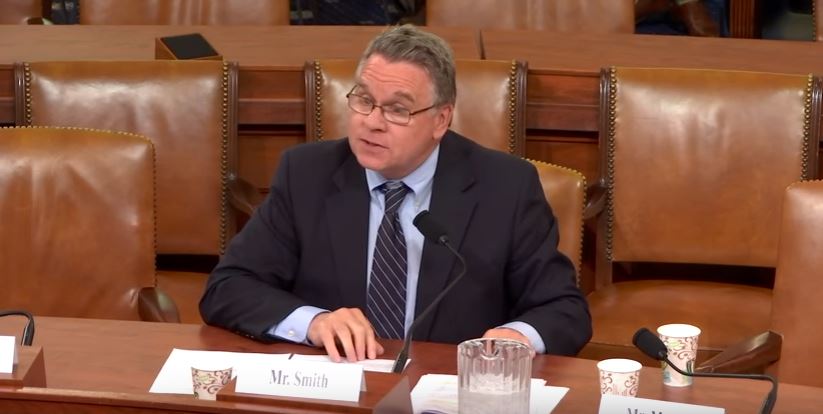Press Release
***Smith Testifies before House Committee about His Key Bill***Pass the HOPE for Alzheimer's Act
Smith’s HOPE Act (HR 1599)—cosponsored by 286 bipartisan members—would add a one-time benefit for care planning services for Medicare beneficiaries newly diagnosed with Alzheimer’s disease and related dementias. More than five million Americans currently have Alzheimer’s disease and as the baby boom population ages, that number is expected to skyrocket. This devastating disease impacts patients, families and caregivers alike. “To ensure optimum care to every Alzheimer’s patient is provided, we need to find innovative ways to improve quality of care,” said Smith, founder and co-chair of the Bipartisan Congressional Task Force on Alzheimer's Disease. “This one time comprehensive care planning session will arm patients and caregivers with the facts about prognosis and most effective treatment plan. When people know the facts they are more likely to get the care they need.” The hearing was held by the House Ways & Means Health Subcommittee and entitled: “Legislation to Improve and Sustain the Medicare Program.” Subcommittee members heard testimony from Smith and other members of Congress who have introduced innovative legislation to provide better health care for our nation’s seniors. Smith highlighted the very real human toll Alzheimer’s takes and the need to improve quality of life for patients and their families and he also pointed out that his legislation will save Medicare money. Former Congressional Budget Office staff at Healthsperien, a health care consulting firm, conducted a cost estimate for HOPE. It indicated that as a result of this legislation, net federal health spending would decrease by $692 million over the 10-year period, 2016-2025, based on an assumption of enactment sometime in 2016. Smith noted that the cost savings is important because Alzheimer’s is the most expensive disease in America. According to the Alzheimer’s Association, in 2016 alone, direct costs to American society of caring for those with Alzheimer’s will total an estimated $236 billion, with just under half of the costs borne by Medicare. “Common causes of hospitalization such as falls, or increased severity of co-occurring conditions because patients are no longer able to manage their own care, can be largely prevented through adequate care planning,” Smith continued. “Preventative strategies result in reduced hospitalizations and emergency room visits, as well as better medication management and better management of co-morbid conditions, meaning improved quality of life for millions of Americans and Medicare cost savings.” Smith (R-NJ) and then-Rep. Ed Markey (D-MA) are co-authors of the National Alzheimer’s Project Act, one of the most significant victories in the fight against Alzheimer’s disease in the past three decades. Enacted into law in 2010, NAPA (P.L. 111-375) requires the creation of an annually-updated strategic National Alzheimer’s Plan to help those with the disease and their families today and to change the trajectory of the disease for the future. Smith also held the first ever congressional hearing examining the global strategies to address Alzheimer’s disease, entitled “Global Strategies to Combat the Devastating Health and Economic Impacts of Alzheimer’s Disease” in 2011, and a second in 2013. He and Markey co-authored the bipartisan National Alzheimer’s Project Act (NAPA) (P.L. 111-375), which requires the creation of an annually-updated strategic National Alzheimer’s Plan to fight Alzheimer’s and help those with the disease and their families. Click here for the most up to date version of this release: /news/documentsingle.aspx?DocumentID=399030
### |



